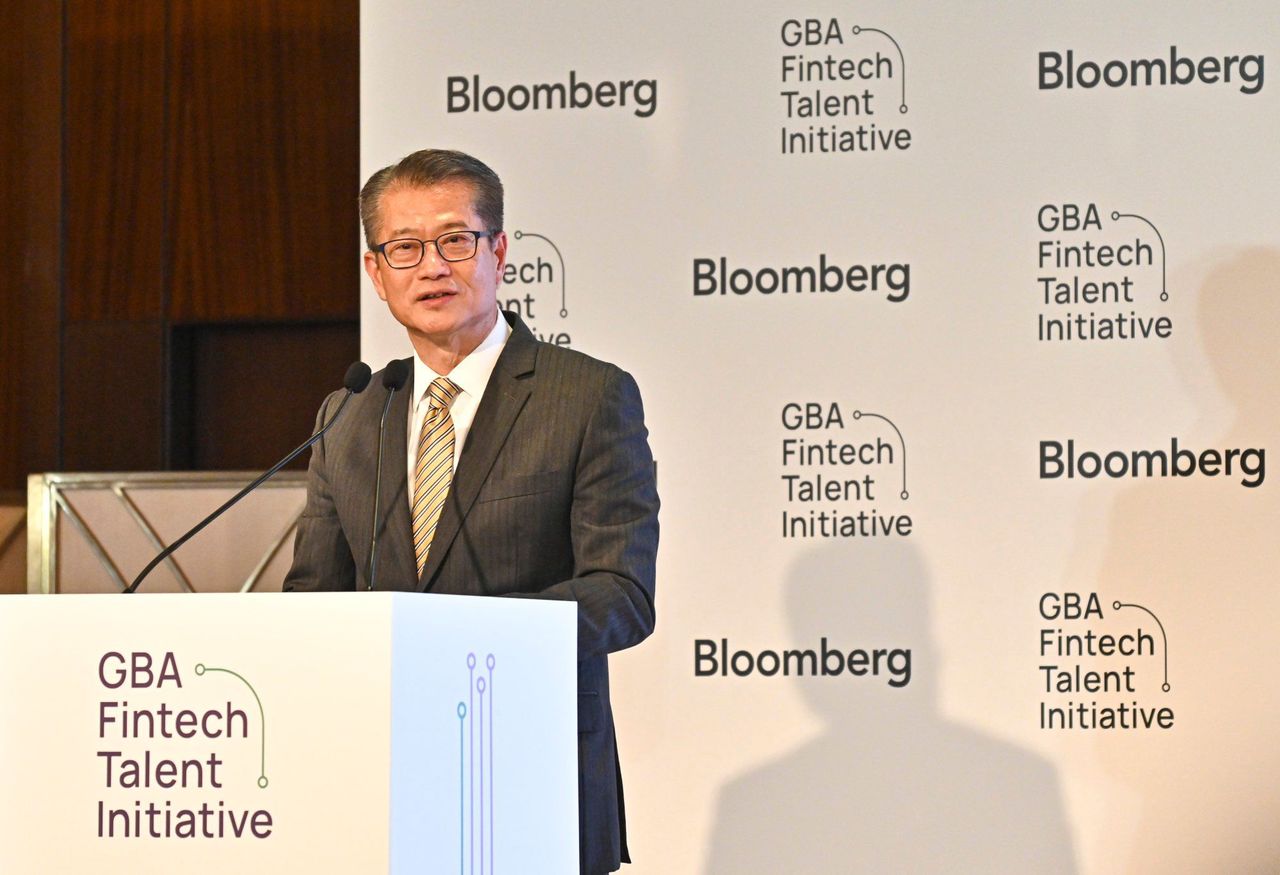Hong Kong News

Young blood, fresh ideas are key to Hong Kong’s fintech future, summit hears
The future of financial technology in Hong Kong will rely on young blood and new ideas, and the city offers many advantages that will help to nurture the sector, industry leaders told a conference.
“The importance of connecting young people with fintech is obvious because digitalisation in the financial sector will continue to accelerate in the years to come,” said Howard Lee, deputy chief executive of the Hong Kong Monetary Authority (HKMA).
“The younger generation is really the major source of new talent and, more importantly, the source of new ideas and innovation, which are so important to the future of fintech.”
He made his comments during a keynote speech at the Greater Bay Area Fintech Talent Summit on Thursday.
The Greater Bay Area Fintech Talent Initiative is a programme organised by the HKMA, Bloomberg and the Hong Kong United Youth Association. The first intake of 323 students completed a three-week training course which ended on March 3.
More than 20 financial giants, including Goldman Sachs, HSBC, Citigroup and Hong Kong Exchanges and Clearing, which operates the local stock exchange, provide support to the initiative.
It aims to nurture fintech talent in the bay area, Beijing’s scheme linking Hong Kong, Macau and nine cities in Guangdong province to form an economic powerhouse by 2035.
Financial Secretary Paul Chan Mo-po said the city’s access to the zone with its 87 million inhabitants provides a huge advantage for fintech companies.
“The GBA is a huge market for our fintech companies [and] will provide vast opportunities ranging from product development and distribution to asset management and surfaces,” said Chan, speaking at the event.
 ‘The GBA is a huge market for our fintech companies [and] will provide
vast opportunities,’ Financial Secretary Paul Chan, told the conference.
‘The GBA is a huge market for our fintech companies [and] will provide
vast opportunities,’ Financial Secretary Paul Chan, told the conference.
Hong Kong offers a business-friendly environment, Chan said, as well as the free flow of capital, making it a very attractive location for fintech companies.
“We are committed to leveraging this unique ecosystem to drive fintech development forward. Looking ahead, it is crucial that we continuously enhance ourselves in the fast paced world of fintech,” he said.
The world’s top financial companies will have to be exposed to fintech, Chan added, as online payments become increasingly commonplace.
The use of online payment systems has seen a sharp increase in Hong Kong. The city saw its online retail sales reach HK$34.6 billion (US$4.41 billion) in 2022, up by about a fifth from the previous year, according to data from the Census and Statistics Department.
Nicholas Aguzin chief executive officer of HKEX, also attended the summit. In a panel discussion, he said Hong Kong is “creating an innovation cluster” and described it as a “Silicon Valley and Wall Street all in one.”
David Liao, co-chief executive at HSBC Asia-Pacific, said the bay area provides a “wealth of career opportunities.”
“The GBA is the new vanguard for China’s development and will be for years to come – in investment, in finance, in fintech, and in trade,” said Liao. “We are pleased that more than 300 undergraduates from local universities participated in the initiative, helping to build a strong pipeline in Hong Kong’s talent pool.”
Hong Kong’s “one country, two systems” is a great strength, according to Liao, as it provides the best of both worlds – access to the world’s second-largest economy and the internationalism of Hong Kong’s finance centre.
The government has slowly introduced several talent schemes it hopes will tackle the so-called brain drain which has seen the local workforce shrink by about 140,000 between 2020 and 2022.
The government’s recent budget announcement included a scheme for secondary-school students aimed at helping them access fintech internships in technology companies. The initiative will work in tandem with other recent policies aiming to attract professionals and top university graduates.
Speaking during another panel discussion at Thursday’s summit, Jia Mao, global head of Goldman Sachs data science and machine learning, cited the benefits of blockchain technology in facilitating innovations that will support the transition towards clean energy, such as tokenised green bonds.
Goldman Sachs was one of the four banks that worked with the HKMA in its HK$800 million roll out of tokenised green bonds last month. The issuance relies on a digital asset platform that is built on top of blockchain technology.
“Blockchain technology has potential, and is already starting to show us how it can basically transform the way financial transactions can be done almost purely with more transparency, more efficiency and with lower costs,” she said.











